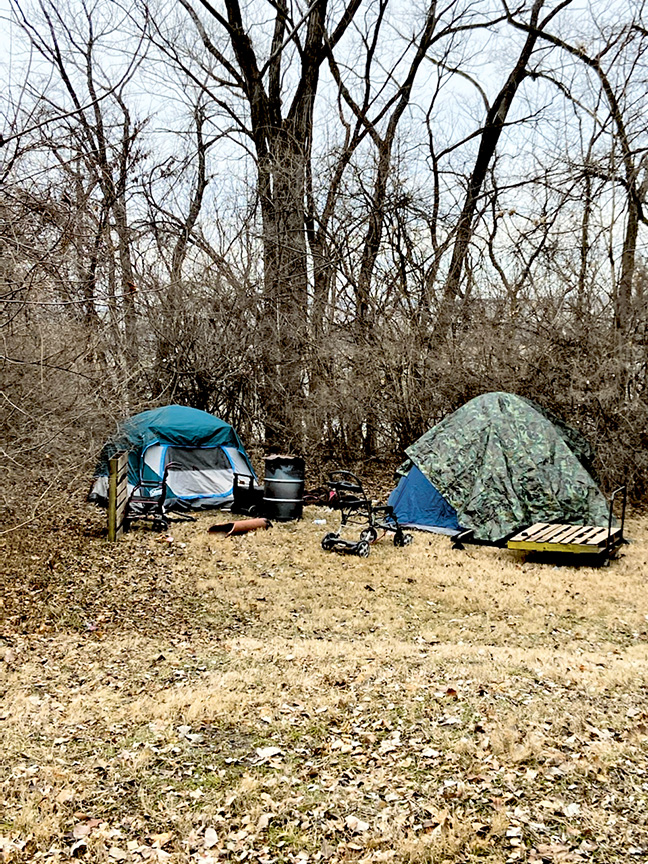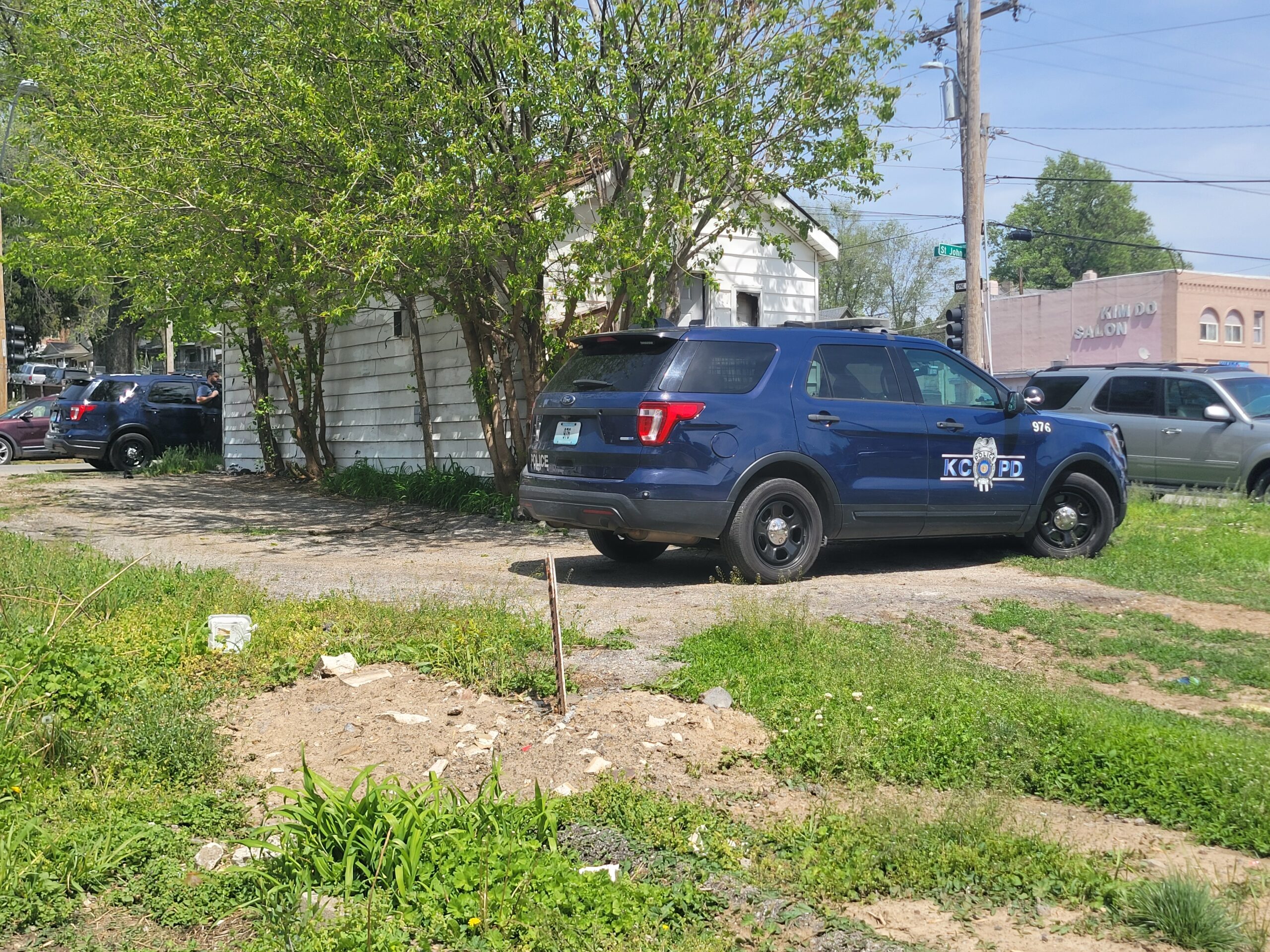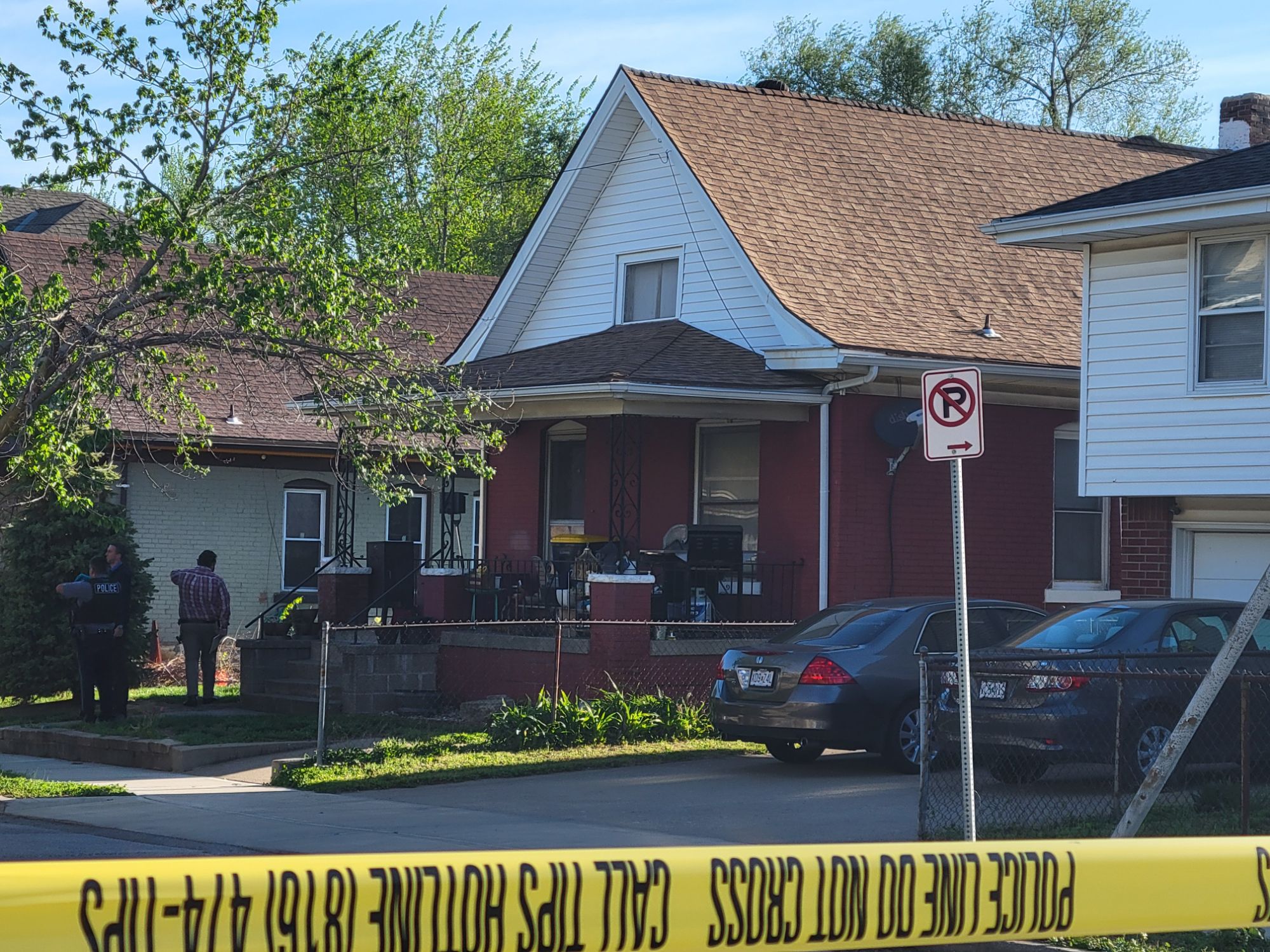
Abby Hoover
Managing Editor
Last week, Kansas City, Mo., officials announced a comprehensive five-year plan to end homelessness in the city through Zero KC.
On the first morning of autumn, nonprofit partners, elected officials, City staff and news reporters gathered on the north steps of City Hall awaiting the announcement.
Mayor Quinton Lucas was joined by Chair of the Houseless Task Force and Fifth District Councilwoman Ryana Parks-Shaw, Houseless Prevention Coordinator Josh Henges and Marqueia Watson, Executive Director of the Greater Kansas City Coalition to End Homelessness.
“Zero KC: A Plan for Ending Homelessness in Kansas City’’ is the result of work done by the City’s Houseless Task Force and the Housing and Community Development Department in the City of Kansas City, Mo. Community Analytics, LLC, a Kansas City-based consulting firm led by Dr. Anne Williamson, provided housing policy expertise and facilitation during the preparation of this plan. Expertise was also provided by Watson and Henges, and the United States Interagency Council on Homelessness (USICH).
The strategic plan is based on the “Kansas City Community Needs Assessment: A Foundation for Ending Homelessness” prepared over the course of a year by Community Analytics. The Needs Assessment includes homeless data, community asset mapping and community-based research techniques to provide an analysis of Kansas City’s needs regarding ending homelessness. It was used to analyze strengths, weaknesses, opportunities, and threats (SWOT) in support of the Strategic Plan.
A Strategic Plan Committee was formed to determine strategic priorities based on the results. The Committee’s work resulted in the identification of five strategic priorities: decommission existing encampments, promoting health, safety and quality of life for all and quickly re-house individuals who live unsheltered; increase affordable housing stock and focus on housing stability; invest in equitable, evidence-informed housing solutions and high-quality wrap-around services; examine the needs of marginalized groups and underserved populations; and maximize funding opportunities and implement creative solutions.
The Department of Housing and Community Development, launched in June 2021, supports tenant advocacy, homelessness prevention, affordable housing preservation and creation, and overall community development.
Created through Ordinance #210235, one of the key components of this department is the implementation and funding of the Office of the Tenant Advocate, created to assist renters with a variety of available services ensuring safe and affordable accommodations for all Kansas City residents.
In 2021, Kansas City issued a Houseless Solutions Request for Proposals. With the goal of creating 5,000 affordable units in the next five years and serving residents across income levels, the City will focus on measures that will close affordability gaps in housing, generate new forms of transitional services within housing communities, rehabilitate homes and revitalize neighborhoods, and create additional funding streams for development. These measures include building different types of housing, even low barrier emergency and transitional, hotel conversions, senior housing and reconstruction of Barney Allis, which is undergoing a major redevelopment. According to its website, the City will prioritize rehabilitating Land Bank properties and transitioning them into deed restricted affordable housing properties, committing resources to the Affordable Housing Trust Fund, utilizing technology to streamline processes and create a low-no interest loan product for additional development opportunities.
Lucas said when he previously served on City Council, they had an effort to get veteran homelessness down to zero in 2018 and 2019, and were successful in working with nonprofit partners.
“There were many of us who said, ‘We need to do more, we need to be bolder and we need to be more impactful,’” Lucas said. “We then fast forward and go through the pandemic, and we saw that we had a problem that we could not ignore. We needed to make sure that we were having housing first solutions to homelessness. We needed to make sure that we were thinking about people in terms of how do we meet them with services, how do we meet them with job opportunities – and you’ll hear about that with the Cleanup KC program – and how do we make sure that we are doing what we need to do to build low barrier housing, and fourthly, making sure that people have somewhere to go.”
This is not a city that is making the mistakes of the past, Lucas said.
“We’re not just moving people on from one place to another,” he added. “We’re not just saying that this is a problem in one small area of the city or one small pocket and not thinking about where someone goes. And I will say this proud, we are not just a city that says it’s a problem for ‘over there’.”
Lucas encouraged Kansas City’s suburban communities to work with them, because they will continue to serve unhoused people from anywhere.
“We will take on that burden because we want to make sure that everyone has somewhere safe to sleep, and we take pride in the fact that Kansas City is a caring and kind community,” Lucas said.
Dependent upon successful passage of the bond election in November, $5 million, or 10% of the total $50 million, will be guaranteed to work in areas of homelessness prevention and low barrier housing for those who are experiencing homelessness.
Parks-Shaw has been working with the community on homelessness since she was elected in 2019.
“What we have identified, which started about a year and a half ago with a regional houseless forum with coordination of State Representative Ingrid Burnett and my office, we really identify that houselessness doesn’t stop at the city line, doesn’t stop at the county line, nor the state line, that this is a regional issue,” Parks-Shaw said. “We began the work a year and half ago to bring our regional partners and to bring all of those organizations that have been working doing this work for many years together to come up with a comprehensive collaborative approach to solving homelessness in Kansas City.”
Burnett said the summit, which focused on Northeast Kansas City, produced a shift in thinking from service providers competing to working together. They plan to follow up with a strategic plan for the neighborhoods, so neighbors know how to get help when they encounter people experiencing homelessness. The conversation and data contributed to the City-wide plan.
Now, Parks-Shaw said they have come up with both long-term strategies and implementable action items that can be used over the next five years to really make an impact.
Eliminating homelessness doesn’t happen without prevention. Earlier this summer, Kansas City implemented another piece of the puzzle.
“On June 1 of this year, the Right to Counsel program started for our city,” Kansas City Director of Housing Jane Brown said. “We are one of only 13 cities in the United States who have such a program. I’m speaking because I want to tell you, so far, the numbers show our program has been a phenomenal success. The first three months worth of numbers show that we have represented 372 family units in Jackson, Clay, Platte and Cass, and of those cases, 73 have been successfully resolved by settlement or by some sort of agreement that either allows the tenant to stay or the tenant is able to move to a different location and rental assistance is offered.”
When individuals are evicted, they often become homeless. Brown said the City can slow down, or even eliminate, the eviction rate.
“Think of all those individuals who will have somewhere else to go or will be able to stay where they’re living and they will not have to be part of our unhoused community on the streets,” Brown said. “I’m proud of this program. I’m proud of our council and our mayor for passing the right to counsel ordinance in December of 2019, and look where we are here today with such success.”
With cold weather approaching, Henges said the City wants to get to a point where it doesn’t need an extreme weather plan every year because low barrier emergency shelter will be adequate.
“This year, I’m confident we’ll be able to repeat what we were able to do last year,” Henges said. “It might not be in the exact same place, but we’ve got nonprofit partners that are opening their doors and right now we’re figuring out the exact spacing, the number of beds that we need, and then the locations that we’re going to put these places.”
According to City officials, camp sweeps will be limited going forward, in conflict with Missouri’s new law, which makes it a Class C misdemeanor for people experiencing homelessness to sleep on state-owned land.
“The new Missouri law is not just cruel, it is heinous, and it is an unfunded mandate in violation of the Hancock Amendment,” Lucas said. “That was just an incredibly cruel piece of legislation, unsurprisingly so, from a state legislature that will not actually fundamentally address long term issues… It is my view, and is still perfectly lawful for us to continue to provide resources, to continue to try to help relocate people, and I believe none of us here believe that the City will be exposed to substantial liability by not just clearing encampments at the earliest opportunity as the state law dictates.”
Lucas said the City will work with the Kansas City Police Department to ensure they are aligning with the City’s approach on the issue, providing services, outreach and care first.
Zero KC will allow an opportunity for organizations who have traditionally been working in silos – focusing on one specialty, competing for funding and creating redundant services – to work together to address particular action items, Parks-Shaw said, adding that there is also opportunity for philanthropic partnership.
“It’s the first time we’ve really seen that kind of coordination,” Burnett said. “It’s a shift. It’s a really, I think, significant paradigm shift from throwing money out there and having people run and grab for it. Instead, we’re looking at a much more coordinated approach that considers not just the folks who are experiencing houselessness, but the folks who are experiencing the consequences and the impact that has on property values and public health. We’re really looking at it on a much more holistic level.”
The first step is to seek Council’s overall approval, then gather an implementation team that would work to establish the milestones.
“It’s a five year plan, so most of the action happens in the first three years, and we will adjust,” Parks-Shaw said. “The plan is to continue to adjust, it’s a living and breathing document that we will continue to adjust. The economy changes, the city changes, you know, the pandemic changed everything, and so we know that we will have to continue to update this living and breathing document to adjust to what the needs are of the city.”
The City is hosting listening sessions on the plan with both in-person and virtual options.
Feedback is also welcome at www.cognitoforms.com/KansasCity2/ZeroKCAPlanToEndHomelessnessInKCMO. The three scheduled dates are September 24 at South Patrol (Multipurpose Center) at 9701 Marion Park Dr. from 9 – 11 a.m.; September 26 at Northland Neighborhoods, Inc. (Raymond R. Brock Jr. Hall) at 5340 NE Chouteau Trafficway from 5 – 7 p.m.; and September 28 at MOHART (Auditorium) at 3200 Wayne Ave. from 5 – 7 p.m.


















